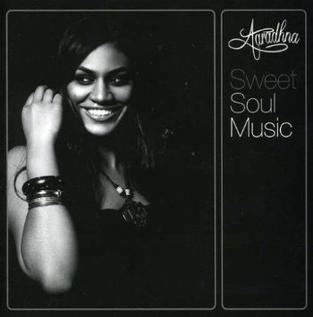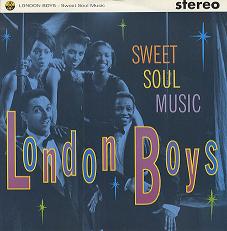
Joscelyn Eve Stoker, better known by her stage name Joss Stone, is an English singer, songwriter and actress. She rose to fame in late 2003 with her multi-platinum debut album, The Soul Sessions, which made the 2004 Mercury Prize shortlist. Her second album, the similarly multi-platinum Mind Body & Soul (2004), topped the UK Albums Chart for one week and spawned the top ten hit "You Had Me", Stone's most successful single on the UK Singles Chart to date. Both the album and single received one nomination at the 2005 Grammy Awards, while Stone herself was nominated for Best New Artist, and in an annual BBC poll of music critics, Sound of 2004, was ranked fifth as a predicted breakthrough act of 2004. She became the youngest British female singer to top the UK Albums Chart. Stone's third album, Introducing Joss Stone, released in March 2007, achieved gold record status by the RIAA and yielded the second-ever highest debut for a British female solo artist on the Billboard 200, and became Stone's first top five album in the US.

Sunflower is the 16th studio album by American rock band the Beach Boys, released in August 1970, and their first on Reprise Records. Despite being met with largely positive reviews, the album suffered unexpectedly poor sales, reaching number 151 on U.S. record charts during a four-week stay, and becoming the lowest-charting Beach Boys album to that point. In the UK, the album performed better, peaking at number 29.
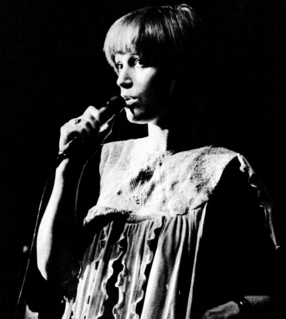
Pauline Matthews, better known by her stage name Kiki Dee, is an English singer born in Little Horton, Bradford, West Riding of Yorkshire. Known for her blue-eyed soul vocals, she was the first female singer from the UK to sign with Motown's Tamla Records.

"Empty Souls" is a song by Welsh alternative rock band Manic Street Preachers. It was released in 2005 by record label Epic as the second and final single taken from their seventh studio album, Lifeblood.
Patty Ryan is a German singer best known for her Europop song "You're My Love, You're My Life" from 1986. She also sang the hits "Stay With Me Tonight", "Love is the Name of the Game", and "I Don't Wanna Lose You Tonight". Her style is similar to that of bands like Modern Talking, London Boys, and Bad Boys Blue. Some of the songs from her debut album resemble Modern Talking songs considerably, You're My Love, You're My Life, I'm Feeling So Blue, and the song Chinese Eyes even is based around melodies from "You're My Heart, You're My Soul". She also sang Danuta Lato's hit "Touch My Heart".
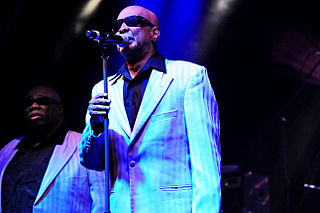
The Blind Boys of Alabama is an American five-time Grammy Award-winning gospel group who first sang together in 1939. The Blind Boys have toured for seven decades and created an extensive discography. In 2016 the on-stage configuration of the group consisted of eight people: four blind singers—Jimmy Carter, Ben Moore, Eric "Ricky" McKinnie, Paul Beasley - guitarist and musical director Joey Williams, and a keyboardist, a bass guitarist, and a drummer.

Edgar Eugene Roland, Jr. is an American musician, singer, songwriter and record producer. He is best known as the lead vocalist and primary songwriter of the rock band Collective Soul. He is also active with a new project, Ed Roland and the Sweet Tea Project.
Nicholas Barry Chinn is an English songwriter and record producer. Together with Mike Chapman he had a long string of hit singles in the UK and US in the 1970s and early 1980s, including several international number-one records. The duo wrote hits for Suzi Quatro, Mud, The Sweet, New World, Arrows, Racey, Smokie, Tina Turner, Huey Lewis and the News and Toni Basil.

Kane Robinson, better known as Kano, is an English rapper and actor from East Ham, London. He is a significant contributor to grime. In 2004, Kano released his debut single "P's and Q's", which was an underground hit within the grime community. After signing to 679 Recordings, Kano released his debut studio album Home Sweet Home (2005), which peaked at number 36 on the UK Albums Chart and featured the top 30 singles "Typical Me" and "Nite Nite". This was followed by the album London Town (2007), featuring Kano's highest-charting single "This is the Girl" featuring Craig David. Through Bigger Picture Music, Kano released his third and fourth albums, 140 Grime St (2008) and Method to the Maadness (2010), both which charted in the top 50.

Encouraging Words is the fifth studio album by American soul musician Billy Preston, released in September 1970 on Apple Records. It was the last of Preston's two albums for the Beatles' Apple label, after which he moved to A&M Records. The album was co-produced by George Harrison and Preston. Harrison's songs "All Things Must Pass" and "My Sweet Lord" were issued here for the first time, two months before his own recordings appeared on his triple album All Things Must Pass.

"The Modern World" is a single released by the British group The Jam on 28 October 1977. The song is the first and only single from the band's second album ,This Is the Modern World.

London Boys were a German-based English dance-pop duo composed of Edem Ephraim and Dennis Fuller. They are best remembered for the UK Top 5 hits "Requiem" and "London Nights".

"The Look of Love" is a popular song composed by Burt Bacharach and Hal David and sung by English pop singer Dusty Springfield, which appeared in the 1967 spoof James Bond film Casino Royale. In 2008, the song was inducted into the Grammy Hall of Fame. It also received a Best Song nomination in the 1968 Academy Awards.

"Oh Happy Day" is a 1967 gospel music arrangement of an 18th-century hymn by clergyman Philip Doddridge. Recorded by the Edwin Hawkins Singers, it became an international hit in 1969, reaching No. 4 on the US Singles Chart, No. 1 in France, Germany, and the Netherlands and No. 2 on the Canadian Singles Chart, UK Singles Chart, and Irish Singles Chart. It has since become a gospel music standard.
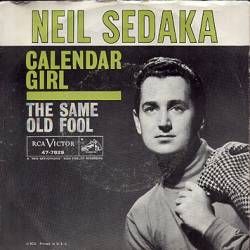
"Calendar Girl" is a song by Neil Sedaka. The music was composed by Sedaka and the lyrics by Howard Greenfield. Recorded in 1960 and released in 1961, it was a Top-5 hit single for Sedaka, peaking at #4 on the US charts, #3 in Australia, and #1 on the Canadian and Japanese charts.
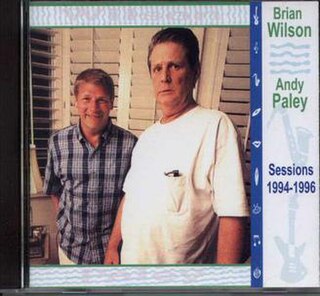
The Andy Paley sessions are an unfinished recording project by American songwriter-musicians Brian Wilson and Andy Paley. Begun in the early 1990s, the intent was to record a studio album comprising original material written and produced by the duo with participation from Wilson's group the Beach Boys. It was the last time Brian would work with the band before the death of his brother and bandmate Carl Wilson in 1998. Paley previously worked with Brian as a co-producer and co-writer for the albums Brian Wilson (1988) and Sweet Insanity (unreleased).
"What Am I Living For" is a song written by Fred Jay and Art Harris and performed by Chuck Willis featuring the Reggie Obrecht Orchestra and Chorus. It reached #1 on the U.S. R&B chart and #9 on the U.S. pop chart in 1958.
